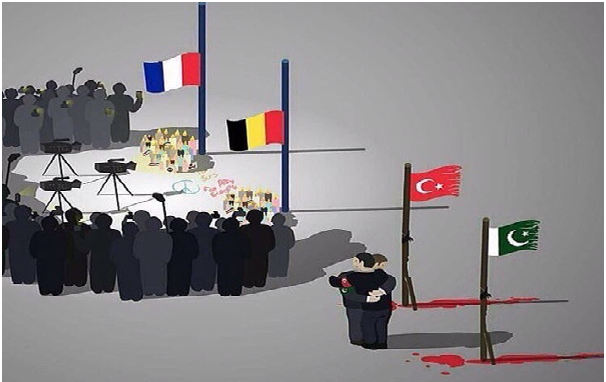No 'Je Suis Istanbul'? Banksy Image And Social Media Users Flag Muted Response To Istanbul Attack

NEW DELHI: 41 people were killed when three suicide bombers armed with automatic rifles attacked Istanbul's main international airport. Officials suspect the involvement of the Islamic State, as Turkey is part of the US-led coalition fighting the militant group in neighbouring Syria and in Iraq. The Ataturk airport attack highlights Turkey’s own political contradictions and is one of the worst in a series of such attacks in the country. Despite its scale, the attack failed to garner the kind of response that similar attacks in France and Belgium have received -- a fact pointed to by several on social media.
Graffiti artist Banksy was one such commentator, who tweeted a picture of Pakistan and Turkey's battered, bloodied flags with two people, one from each country, hugging each other. Meanwhile, flags of France and Belgium are surrounded by people and media personnel. “I'm so heartbroken to hear about the attack in Istanbul, Turkey. This image is so sad, but so true,” Banksy tweeted.
The image posted by Banksy was retweeted by several social media users. Variations of the image -- with the same message, i.e. of the disproportionate attention received by attacks in France, Belgium, the western world and elsewhere -- were circulated.
Several statuses and tweets echoed the same sentiment.
Facebook -- which activated a ‘safety check’ feature allowing people in the area to mark themselves as ‘safe’ after the attack -- was criticised because it did not offer the feature enabling users to change their profile photo to the colours of the Turkish flag -- a feature offered in the aftermath of the Brussels and Paris attacks.
The reality is that such attacks in Turkey, or Afghanistan, Pakistan, Syria, Iraq and the rest of the world, are hardly accorded the same space and narrative as attacks in the western world. Do some lives matter more than others?



